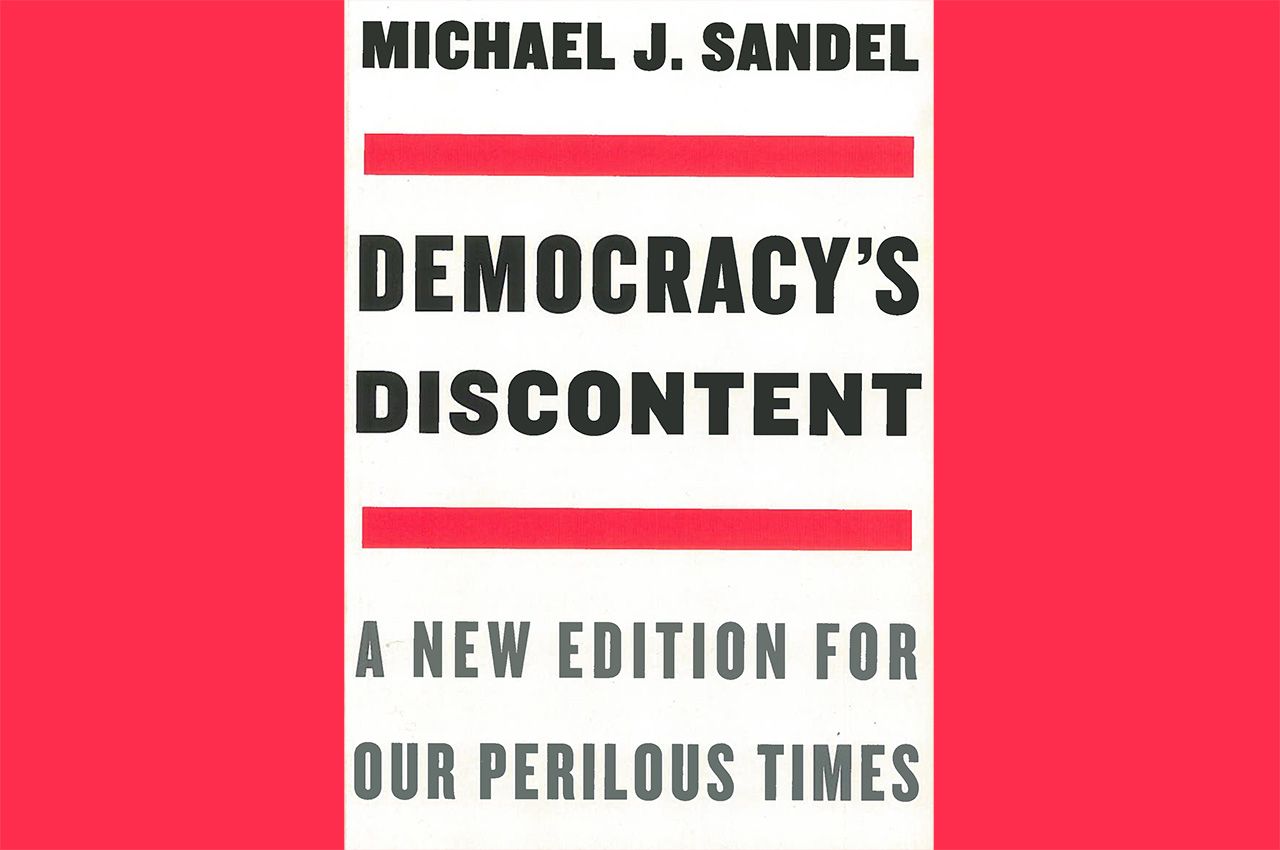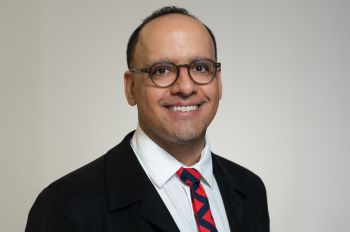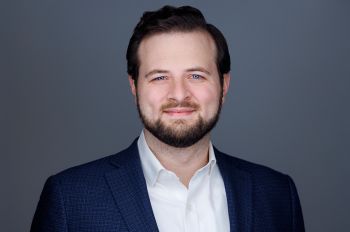Michael J. Sandel Wins Chicago-Kent’s 2023 Palmer Prize

“Our civic life is not going very well.”
So opens Democracy’s Discontent: A New Edition for Our Perilous Times (Harvard University Press 2022), a book written by Michael J. Sandel, Anne T. and Robert M. Bass Professor of Government at Harvard University.
The original version of Democracy’s Discontent was released in 1996, when the end of the Cold War left America’s version of capitalism dominant on the world stage. However, Sandel argued that under the surface of triumph and peace, concern about the widening divide between the rich and the poor threatened to unsettle the American experiment in self-government.
“In the 1990s, the discontent took the form of [not fully formed] anxieties—a growing sense that we were losing control of the forces that govern our lives, and that the moral fabric of community was unraveling,” Sandel writes in the book, the winner of Chicago-Kent College of Law’s 2023 Roy C. Palmer Prize on Democracy, Civil Liberties, and the Rule of Law.
If an examination of democracy and its discontents was needed in the 1990s, Sandel believes it’s potentially even more necessary now. He traces the continuing peril facing American democracy through the Clinton-Bush-Obama years and into the Trump administration in an updated version of the legal classic.
“In the years since the first edition of this book was published, democracy’s discontent has deepened, becoming so acute as to raise doubts about the future of American democracy,” Sandel writes.
Over 341 pages, Sandel examines the relationship that Americans have with government, political parties, and the economy. The updated version connects American’s discontent in the 1990s to contemporary issues: the Trump presidency, the COVID-19 pandemic, and the January 6, 2021, attack on the United States Capitol, as well as international incidents such as the United Kingdom deciding to leave the European Union in 2015, an incident known as Brexit.
“Brexit and the border wall both symbolized a backlash against market-driven, technocratic mode of governing that had produced job loss, wage stagnation, rising inequality, and the galling sense among working people that elites looked down on them. The votes for Brexit and Trump were anguished attempts to reassert national sovereignty and pride,” Sandel writes.
Sandel argues that America’s unaccountable economic power and entrenched polarization are connected and disempowering democratic politics. He says those dueling aspects of the American predicament lead to much of the rancor that citizens have about their democracy.
“Across the political spectrum, many Americans see that government has been captured by powerful interests, leaving the average citizen little say in how we are governed,” he writes.
But all hope is not lost. Sandel puts forward a challenge to his readers to rethink the civic tradition, to imagine a future in which economic power is subject to democratic control and Americans can think of themselves as citizens, not just consumers and where corporations are prevented from becoming “too big to fail.”
“As citizens, we have a stake in creating an economy hospitable to the project of self-government. This means that economic power must be subject to democratic control,” Sandel writes. “It also requires that everyone be able to earn a decent living under dignified conditions, have a voice in the workplace and in public affairs, and have access to a broadly diffused civic education that equips them to deliberate about the common good.”
The Palmer Prize was established in spring 2007 by alumnus Roy C. Palmer ’62 and his wife, Susan M. Palmer, to honor a work of scholarship that explores threats to, or supports of, the liberal democratic constitutional order. The $10,000 prize is designed to encourage and reward public debate among scholars on current issues affecting the rights of individuals and the responsibilities of governments throughout the world.
Michael J. Sandel will visit Chicago-Kent to deliver the 2023 Roy C. Palmer lecture on Tuesday, April 2, 2024 in the Marovitz Courtroom. The public lecture is scheduled to begin at 10:45 a.m. Register here



